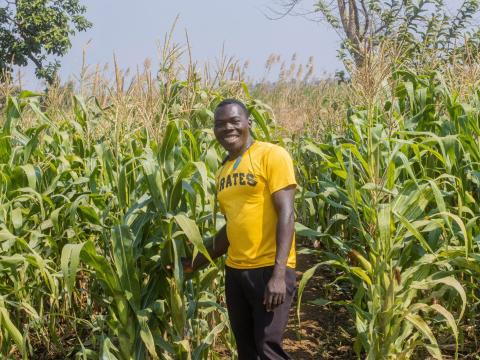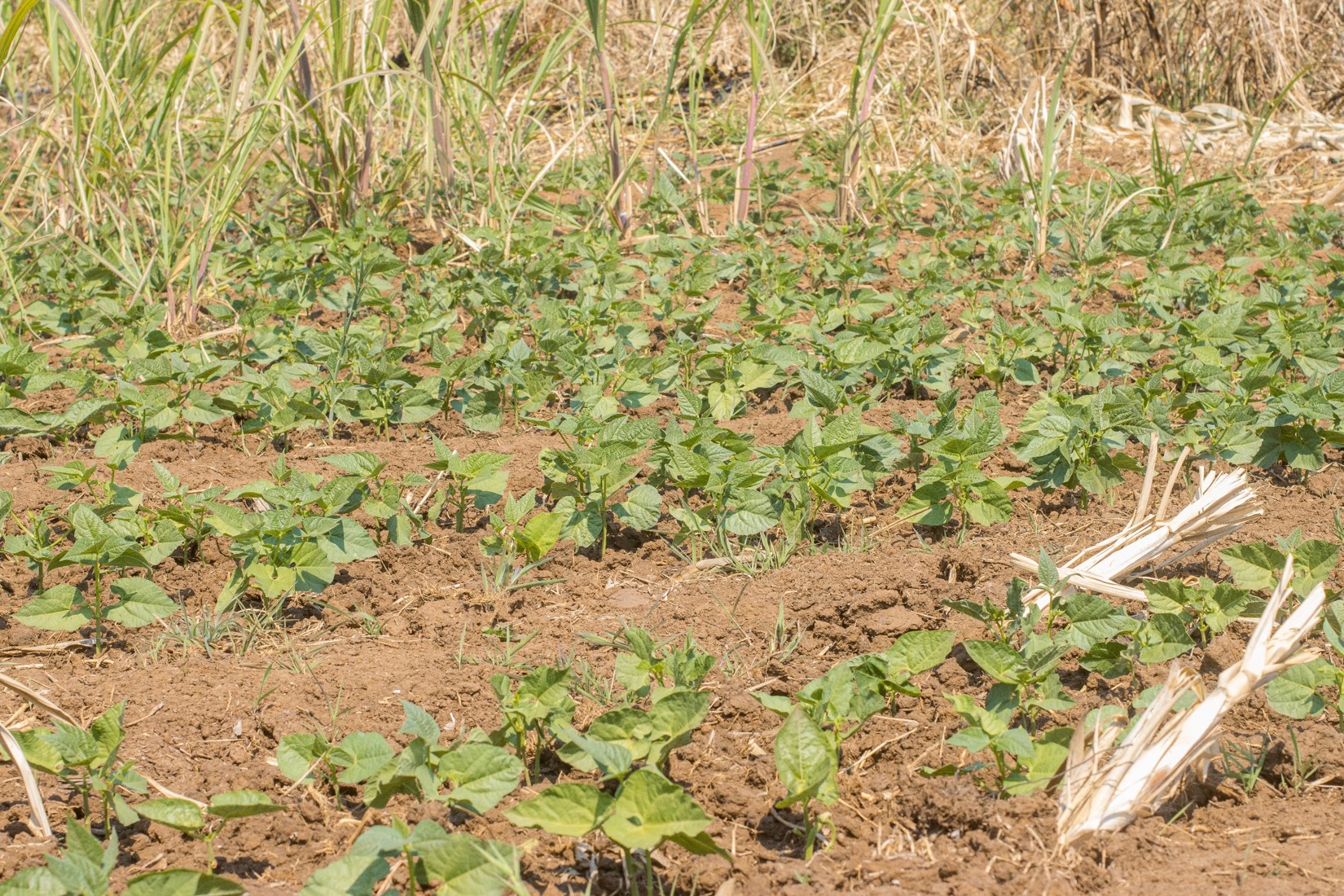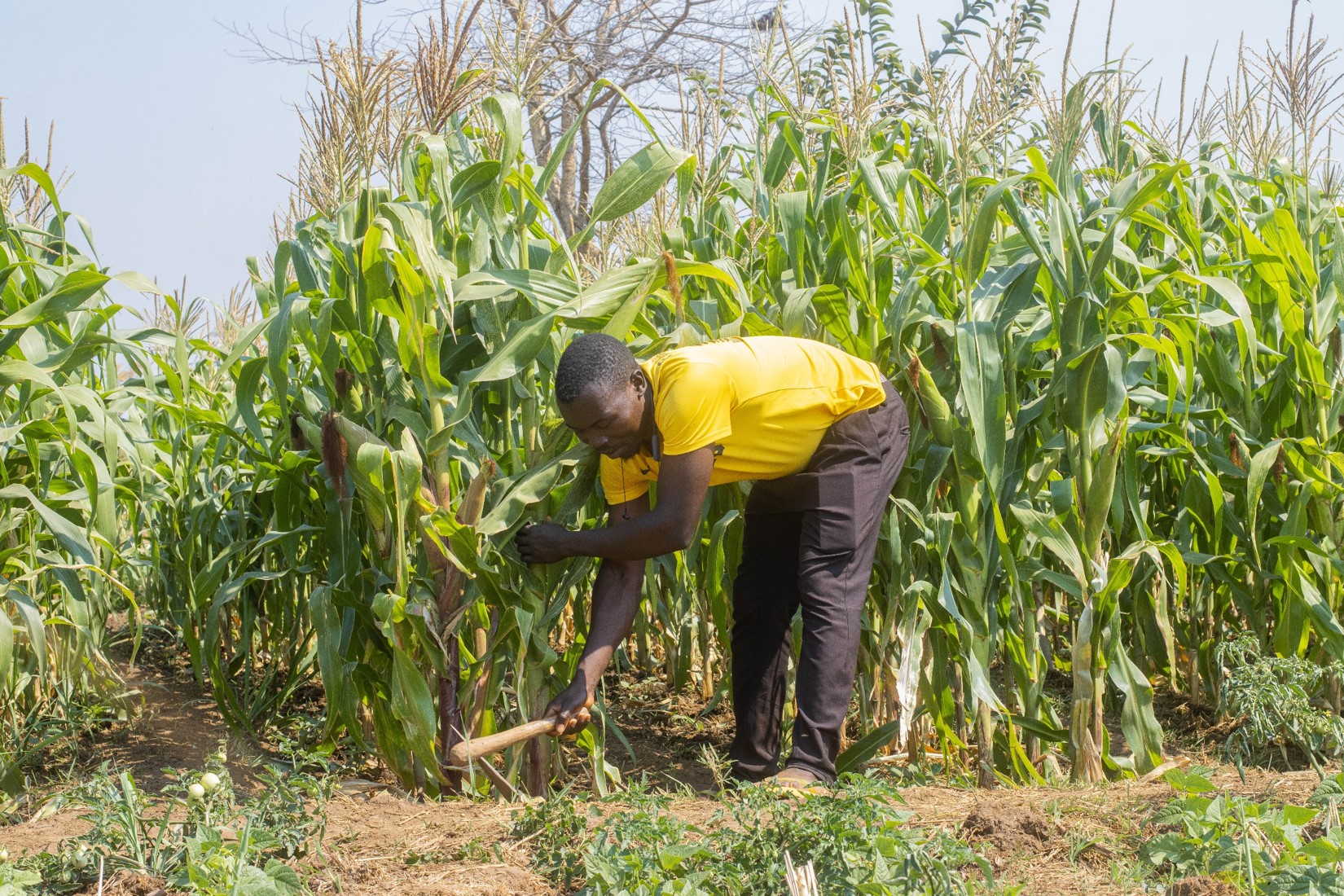Sowing Hope: Tedson Turned Struggle to Abundance Through Knowledge and Resilience

By Trinity Kubalasa.
Communications and External Engagement Manager, World Vision Malawi.
Every morning before the sun rises Tedson from Traditional authority Chulu in Matondo village rises from his bed, picks up his farming tools, and makes his way to his garden which is a few kilometers from the his house, It has become a routine he treasures
Just a few years ago farming for Tedson from Muntchenda Area Program, did not bring the same joy.
“I used to farm without any real knowledge, I would just plant because I had land and my harvests were poor, and sometimes, I wondered if all the hard work was worth it,” says Tedson.
Like many farmers in his community, Tedson struggled with low yields, depleted soils, and limited farming techniques, providing for his family was never easy but that changed when World Vision introduced the Livelihood Project which he became the beneficiary.
Through the training, Tedson learned how to make organic manure, a skill that has not only improved his soil fertility but also reduced his dependence on costly chemical fertilizers.
“They showed us how to use what we already have, like crop remains and animal waste, to make manure, now my crops grow better, and I don’t spend much money on inputs,” says Tedson.
The training also introduced him to irrigation farming, with access to water, Tedson can now plant three times a year. His once barren field now flourishes with vegetables, maize, and beans, ensuring food on the table throughout the year.

“These trainings are very helpful. Last growing season I harvested nothing, but with irrigation I managed to plant maize and sold the green cobs. From the sales, I bought eight bags of maize for my family. Part of the green maize is still in the field, and I hope to sell it next month. Right now, most of my garden is filled with beans, which I am also irrigating,” says Tedson.
To meet the growing water needs of his crops, Tedson dug another well close to his garden, which lies a few kilometers from his home.
The improvements in his garden have also transformed his economic status, with regular harvests from a diversity of crops and Tedson is now able to sell surplus produce at the local market, generating a steady income.
“I can afford things I never could before, I’ve been able to buy more food, seeds for the next planting season, and even small household items my family needs,” says Tedson.
 More importantly, Tedson’s children are benefiting directly from his hard work and the knowledge he gained. “Now I can pay school fees without struggling,” he explains.
More importantly, Tedson’s children are benefiting directly from his hard work and the knowledge he gained. “Now I can pay school fees without struggling,” he explains.
“My children have enough to eat, and I can provide uniforms and books, it gives me hope that they will have a better future,” he said.